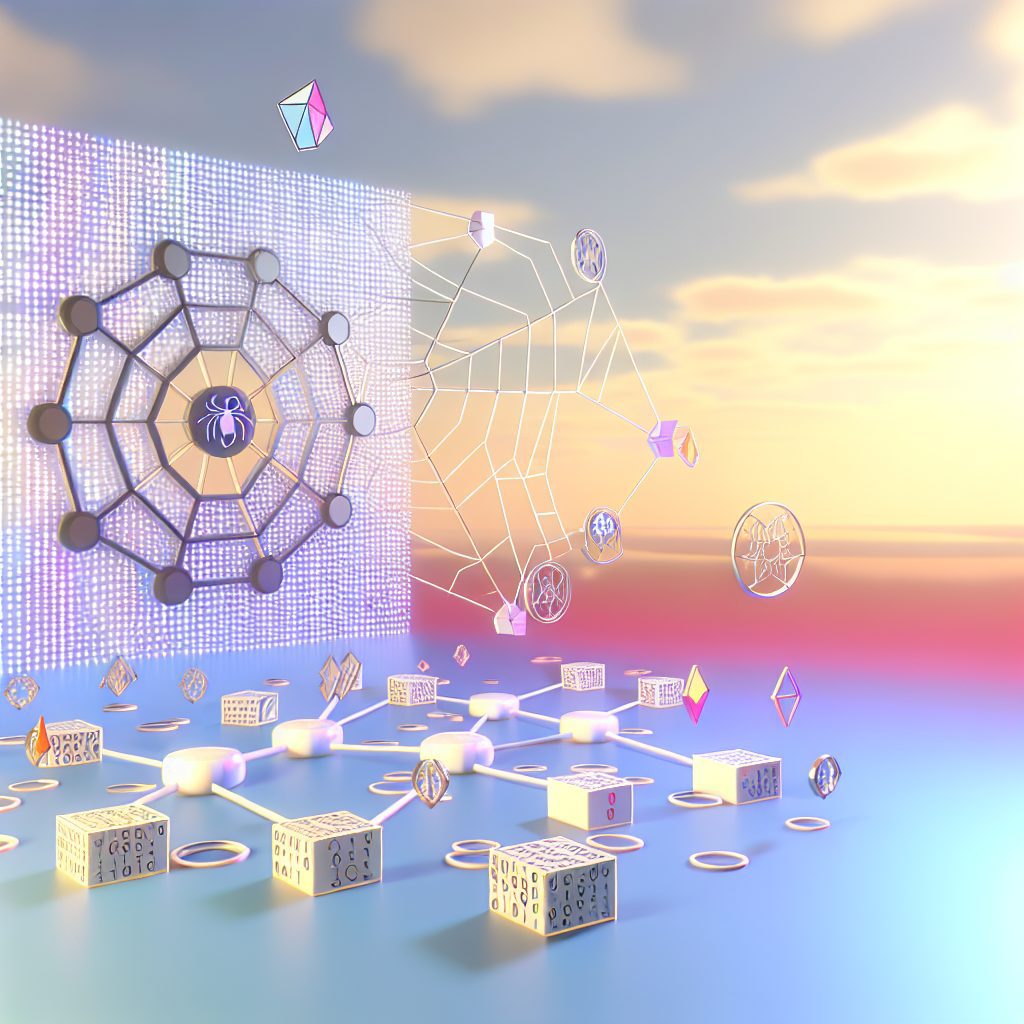Why Decentralization Matters in Web3
The evolution of the internet has led us to a new paradigm known as Web3, where decentralization plays a pivotal role. In the context of the cryptocurrency industry, decentralization is not just a buzzword; it is a fundamental principle that underpins the entire ecosystem. This article delves into the significance of decentralization in Web3, exploring its implications for security, privacy, and user empowerment.
Understanding Decentralization
Decentralization refers to the distribution of authority, control, and decision-making away from a central entity. In traditional systems, power is often concentrated in a few hands, leading to vulnerabilities and inefficiencies. In contrast, decentralized systems operate on a network of nodes, where each participant has a say, and no single entity can dictate the rules.
In the cryptocurrency space, decentralization is achieved through blockchain technology. Each transaction is recorded on a public ledger, ensuring transparency and security. This structure not only enhances trust among users but also mitigates the risks associated with centralization, such as fraud and censorship.
The Importance of Decentralization in Web3
Decentralization is crucial for several reasons:
- Enhanced Security: Decentralized networks are less susceptible to attacks. Since there is no central point of failure, hackers would need to compromise multiple nodes to disrupt the system.
- Increased Privacy: Users have greater control over their data. In a decentralized environment, personal information is not stored in a central database, reducing the risk of data breaches.
- User Empowerment: Decentralization shifts power back to the users. Individuals can participate in governance and decision-making processes, fostering a sense of community and ownership.
- Resistance to Censorship: Decentralized platforms are less likely to be censored by governments or corporations, allowing for free expression and innovation.
Real-World Applications of Decentralization
Decentralization is not merely theoretical; it has practical applications across various sectors. Here are some notable examples:
1. Decentralized Finance (DeFi)
DeFi platforms like Uniswap and Aave exemplify the power of decentralization in finance. These platforms allow users to lend, borrow, and trade cryptocurrencies without intermediaries, reducing costs and increasing accessibility.

2. Non-Fungible Tokens (NFTs)
NFTs have revolutionized the art and entertainment industries by enabling artists to tokenize their work. Platforms like OpenSea operate on decentralized networks, allowing creators to retain ownership and control over their digital assets.
3. Decentralized Autonomous Organizations (DAOs)
DAOs represent a new form of organizational structure where decisions are made collectively by members. Projects like MakerDAO empower users to participate in governance, ensuring that the community’s voice is heard.
Statistics Highlighting the Shift Towards Decentralization
The shift towards decentralization is evident in various statistics:
- According to a report by Statista, the total value locked in DeFi protocols reached over $100 billion in 2021, showcasing the growing interest in decentralized finance.
- A survey conducted by Blockchain.com revealed that 70% of respondents believe decentralization is essential for the future of the internet.
- The NFT market surged to a valuation of $41 billion in 2021, indicating a strong demand for decentralized ownership of digital assets.
Challenges of Decentralization
While decentralization offers numerous benefits, it is not without challenges:
- Scalability: Decentralized networks often face scalability issues, as increasing the number of transactions can lead to slower processing times.
- User Experience: Many decentralized applications (dApps) can be complex and difficult for non-technical users to navigate.
- Regulatory Uncertainty: The decentralized nature of cryptocurrencies poses challenges for regulators, leading to uncertainty in compliance and legal frameworks.
The Future of Decentralization in Web3
The future of decentralization in Web3 looks promising. As more users become aware of the benefits of decentralized systems, the demand for such solutions will likely increase. Innovations in blockchain technology, such as layer-2 solutions and interoperability protocols, aim to address current challenges and enhance the user experience.
Furthermore, as governments and institutions recognize the potential of decentralized systems, we may see a shift in regulatory approaches that support innovation while ensuring consumer protection.
FAQs About Decentralization in Web3
What is the main advantage of decentralization in cryptocurrency?
The primary advantage of decentralization in cryptocurrency is enhanced security. By distributing control across a network of nodes, the risk of a single point of failure is minimized, making it more difficult for hackers to compromise the system.
How does decentralization impact user privacy?
Decentralization improves user privacy by allowing individuals to control their data. In a decentralized network, personal information is not stored in a central database, reducing the likelihood of data breaches and unauthorized access.
Are there any downsides to decentralization?
Yes, decentralization can lead to challenges such as scalability issues, complex user experiences, and regulatory uncertainty. However, ongoing innovations in blockchain technology aim to address these challenges.
What role do DAOs play in decentralization?
DAOs, or Decentralized Autonomous Organizations, enable collective decision-making among members. They empower users to participate in governance, ensuring that the community’s voice is heard and fostering a sense of ownership.
Conclusion
Decentralization is a cornerstone of Web3 and the cryptocurrency industry. It enhances security, privacy, and user empowerment while fostering innovation and resistance to censorship. As we move forward, the importance of decentralization will only grow, shaping the future of the internet and financial systems.
For the latest updates on cryptocurrency news and price tracking, visit Bitrabo. Stay connected with me on social media: X, Instagram, Facebook, and Threads.
Disclaimer: This article is for informational purposes only and should not be considered financial advice. Always conduct your own research before making investment decisions.
The Crypto Watchlist of the Week 🔎
Subscribe to receive expert-curated projects with real potential—plus trends, risks, and insights that matter. Get handpicked crypto projects, deep analysis & market updates delivered to you.


